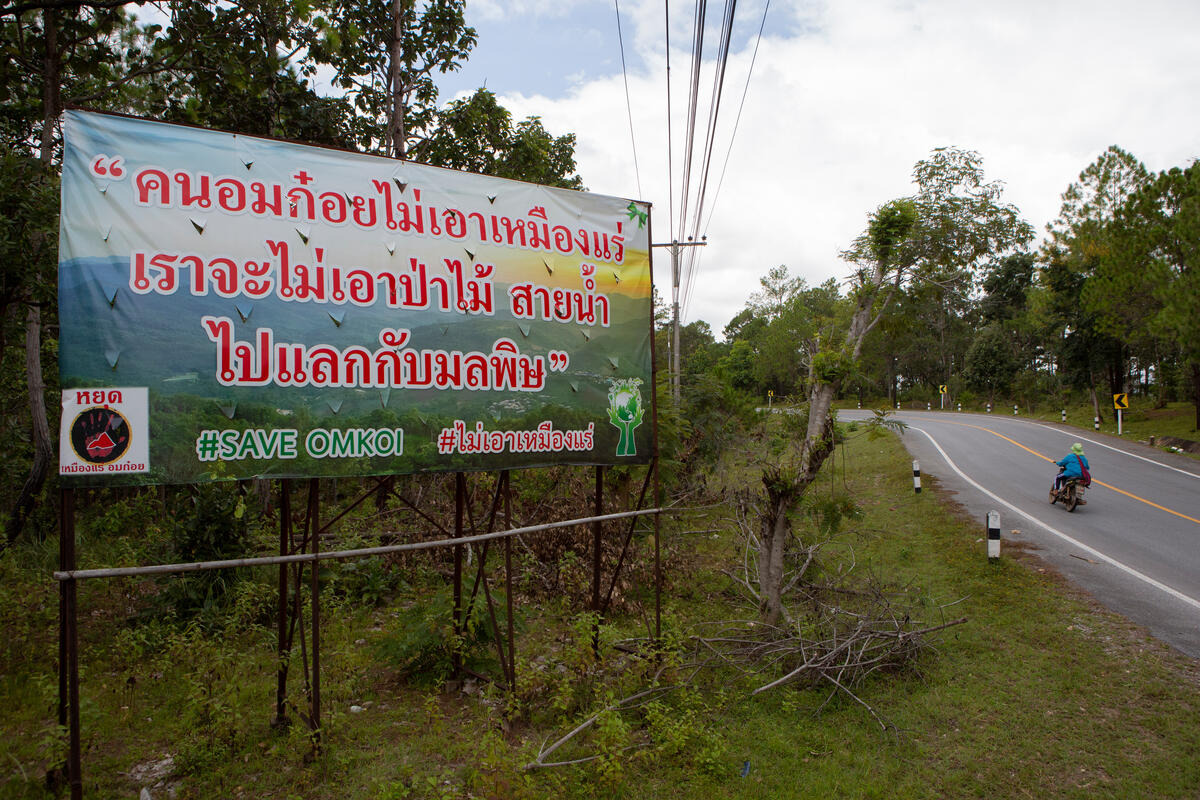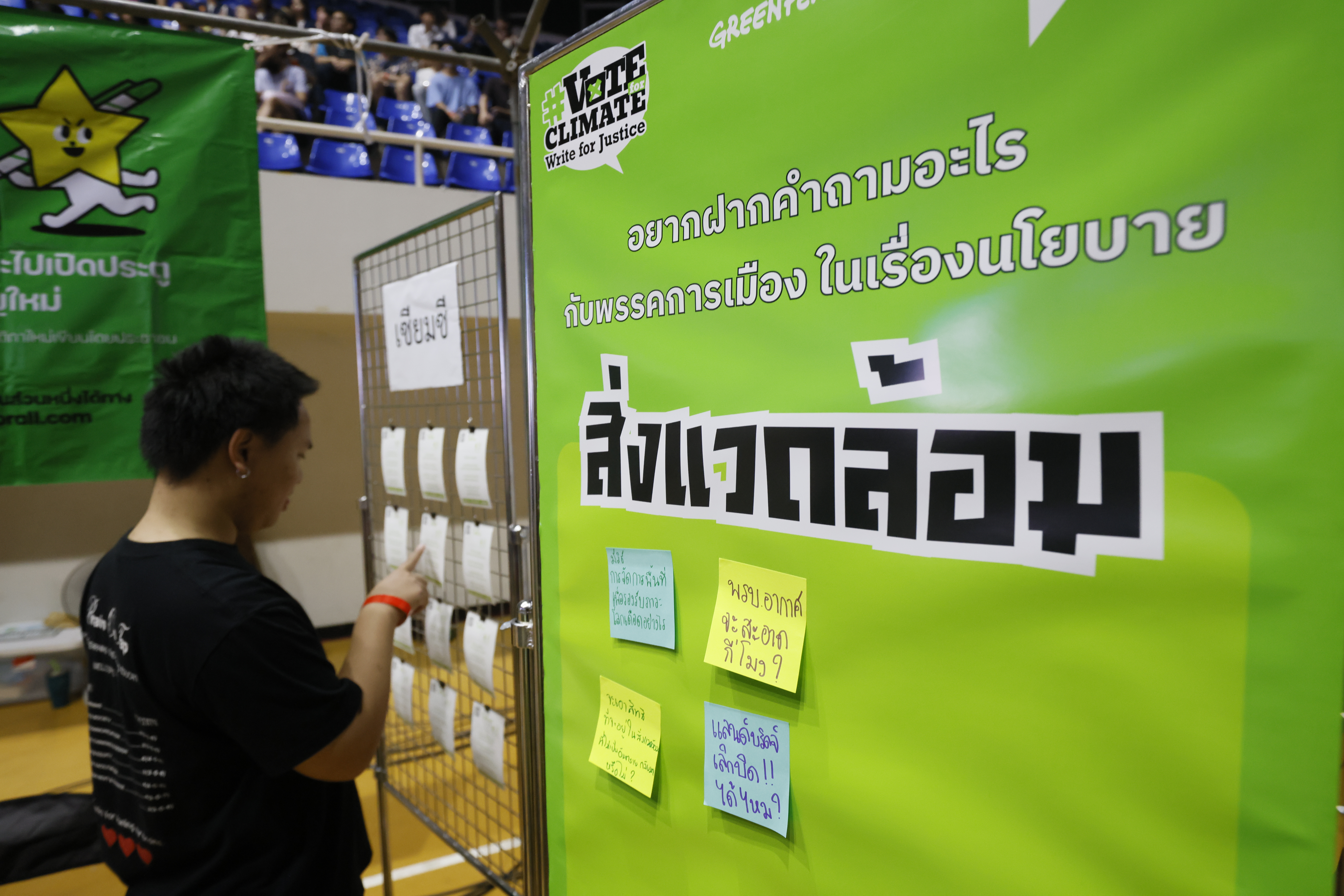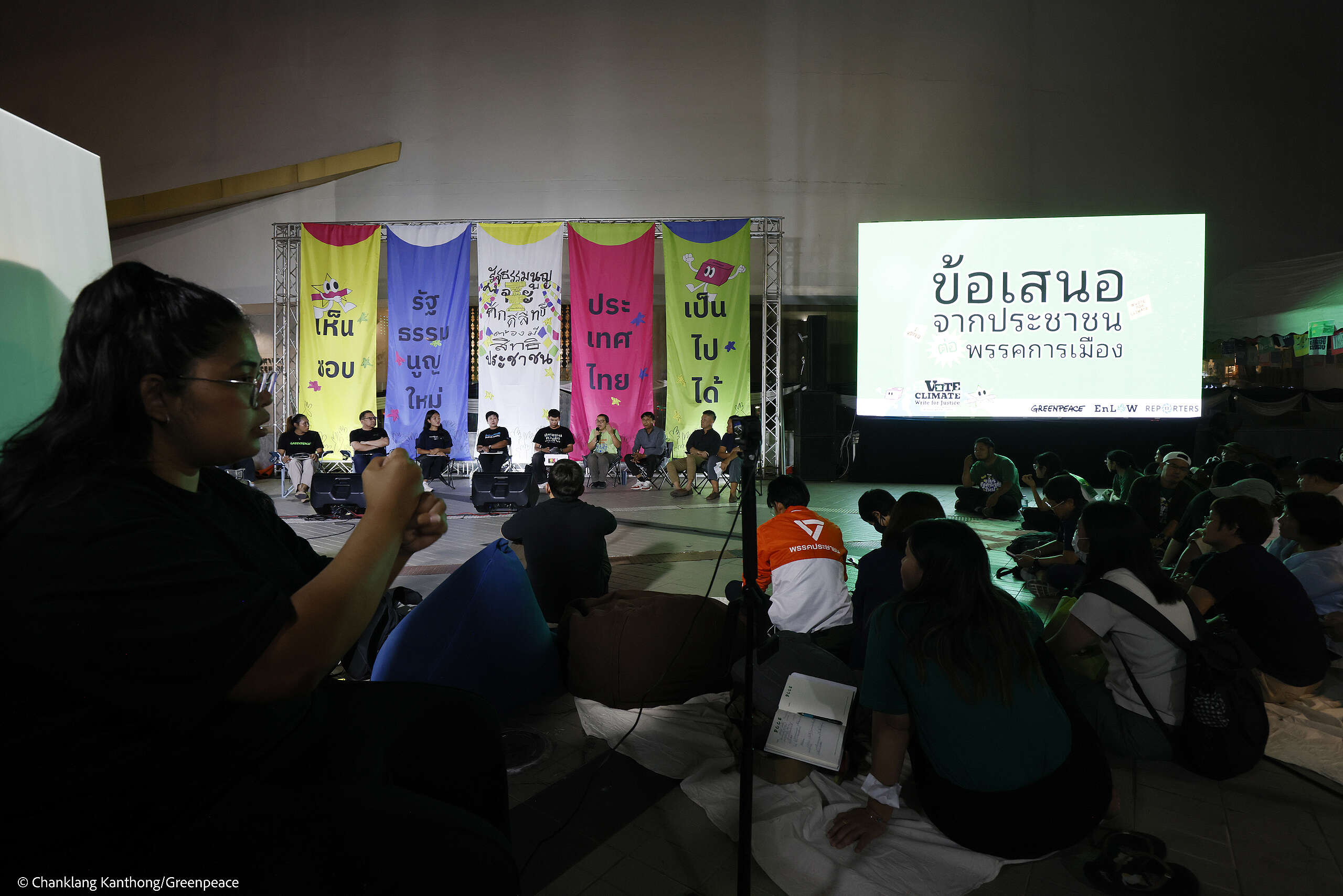15 October 2024
by The People Network for Climate Justice and Against Greenwashing
The climate crisis and global boiling are exploitative legacies of over a century of colonialism and the Industrial Revolution, where wealthy nations and corporate elites relentlessly extracted fossil fuels—coal, oil, and gas—to capture economic and political power, fueling deep social inequality and ecological devastation.
Thailand, as a developing country in the Global South, has endured decades of modernization through the exploitation of natural resources and the oppression of local communities. Today, it ranks among the world’s most vulnerable nations to the impacts of the climate crisis, and loss of biodiversity. Between 2000 and 2022, Thailand faced 146 extreme weather events, resulting in 0.21 deaths per 100,000 people and $7.72 billion in damages— approximately 0.82% of GDP. Climate model projections reveal a stark future: with a 1.5-degree Celsius rise in global average temperatures, Thailand faces a 2.6% increase in hot and dry days and a 3% escalation in flood severity. Yet, if temperatures surge to 3 degrees Celsius, Thailand will see hot and dry days spike by 10%, with flood severity soaring by 13%, marking a drastic shift in climate-driven impacts. The hardest-hit groups include farmers, fishermen, the urban and rural poor, local communities, ethnic minorities, children, youth, women, LGBTQ+ individuals, laborers, and migrant workers.
The devastating catastrophe of the climate crisis and biodiversity loss—one we scarcely contributed to—has brutally intensified social inequalities and plunged countless communities deeper into poverty. Thailand’s climate policies, including greenhouse gas reduction targets, carbon neutrality, and Net Zero commitments, all anchored in the 2017 Constitution and the 20-year National Strategic Plan, function as instruments for the economic and political elite to entrench their power and preserve the status quo. These policies empower the fossil fuel industry, agribusiness giants/Big Meats, and other destructive development ventures to greenwash their practices under the guise of “sustainable development” and “international cooperation.” By exploiting carbon trading and ecosystem credit systems, these industries perpetuate unchecked greenhouse gas emissions and pollution, shielding themselves from accountability while communities bear the brunt of the crisis.
This is an outright assault on community rights, farmers’ rights, indigenous people and ethnic rights, and fundamental human rights, all under the pretense of addressing global boiling—a violation perpetuated by the state, corporate power, and their exploitative systems.
The People’s Network for Climate Justice and Against Greenwashing asserts that the climate crisis and biodiversity loss pose an extreme and escalating threat to community rights, farmers’ rights, indigenous and ethnic rights, and fundamental human rights. In response, a rights-based framework must be at the forefront of all climate action. If the world’s major polluters—including wealthy industrialized nations, the fossil fuel giants, Big Agriculture, Big Meat, and other destructive industries—fail to drastically and urgently cut their emissions, the violation and erosion of these essential rights will intensify, plunging vulnerable communities into even greater peril and exacerbating global injustice. The time to act is now—before these rights are sacrificed in the name of profit and unchecked development.
Achieving genuine climate justice in Thailand demands a radical break from outdated development paradigms that have prioritized profit over people and ecosystems. It requires embracing the principle of ecological debt—a commitment to holding the world’s largest polluters accountable not only for today’s emissions but for a long history of social exploitation and ecological destruction woven through their global supply chains. This accountability cannot be superficial; it must include reparations for the widespread loss of land, the devastation of livelihoods, and the countless other harms inflicted by global boiling. Justice calls for these corporations and wealthy nations to bear the full cost of their impact, to restore what has been destroyed, and to support the healing and resilience of communities most affected. Without this transformative shift, climate justice will remain out of reach.
The People’s Network for Climate Justice and Against Greenwashing’s calls to action are the following:
- Keep fossil fuels in the ground by supporting the proposal for a Fossil Fuel Non-Proliferation Treaty, led by 14 nations (Vanuatu, Tuvalu, Tonga, Fiji, Solomon Islands, Niue, Antigua and Barbuda, Timor-Leste, Palau, Colombia, Samoa, Nauru, Marshall Islands, and the Federated States of Micronesia), 119 cities and local governments, 3,719 organizations, institutions, and businesses, and millions of people around the world.
- End the Paris Agreement negotiations built on an outdated development paradigm dominated by the top 1%, who exploit their economic and political power, along with bilateral and multilateral mechanisms, solely to extract profit and accumulate wealth while maintaining the status quo. Mechanisms for reducing greenhouse gas emissions imposed by wealthy nations, whether mandatory, such as the Emission Trading System, or voluntary, like the Voluntary Carbon Market, serve only as tools to legitimize the violation of community rights, farmers’ rights, indigenous rights, and human rights in developing and poor nations of the Global South, who bear the brunt of the losses and damages from the climate crisis.
- Climate finance must be grounded in the historical responsibility of wealthy nations for fueling the climate crisis, by repaying the “ecological debt” to developing and poor nations in the Global South. It must be a mandatory mechanism to compensate for the losses and damages caused. Until now, climate finance has largely been a voluntary system, reliant on loans, trapping these nations in a vicious cycle of debt as they are forced to bear the costs of recovering from a climate catastrophe they did not create.
- End the role of multinational corporations that promote unsustainable production, consumption, and lifestyles, while using their influence to sway national and international policy decisions.
- Support UNFCCC member states in creating economic and social models that protect the fundamental rights to clean air, land, water, food, and healthy ecosystems.
- Oppose military actions, occupation, suppression, and the exploitation of land, water, oceans, people, cultures, and other living beings—especially in connection with the fossil fuel, large-scale food/meat, and mining industries.



